The AbdulRazaq family from Ilorin is one of the most powerful families not only in Kwara State, but the entire Nigeria at large. The fame of the family has to do with the accomplishments and prominent positions held by the patriarch of the family, Alhaji Abdul Ganiyu Folorunsho AbdulRazaq, his wife, Alhaja Raliat AbdulRazak and their successful children. Today, the family’s name rings a bell in many facets of the society as a result of their many accomplishments, recording many firsts across different endeavours. The patriarch of the family, a nonagenarian lawyer, has not only been able to build himself as one of the most successful Nigerians with many accomplishments but has also been able to build a formidable family name with his children occupying prominent positions in the society, making it one of the most powerful dynasties in modern Nigeria. A peep into the family shows that while the patriarch of the family, Abdul Ganiyu Folorunsho AbdulRazaq is associated with so many firsts, as a lawyer, politician, diplomat, legislator, minister, educationist and holder of traditional titles, his 7 children are also carving a niche for themselves in their respective fields of endeavour across politics, business, public administration, etc.
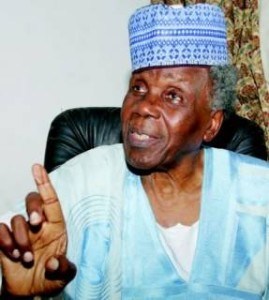
Alhaji Abdul Ganiyu Folorunsho AbdulRazaq: The patriarch of the Dynasty
His string of ‘firsts’ probably has no comparison in Nigeria. And for one individual, it is quite a record. He holds the record as the first university graduate from today’s Kwara State; the first lawyer from the former Northern Region; the first and only national legal adviser of the Northern People’s Congress – the ruling party in the First Republic – and the first Ilorin man to be appointed a Nigerian ambassador.
He was also the first Federal Minister from Ilorin; the first finance commissioner in Kwara State; the first Senior Advocate of Nigeria from Kwara State; the first Kwaran to establish a secondary school; the first Mutawali of Ilorin and the first Tafidan of Zaria.
Quite interestingly, the ‘firsts’ that are associated with Abdulrazaq are not limited to him alone. His wife has some, as well. Alhaja Raliat Abdulrazaq, his wife of more than five decades, was the first female councilor in the Northern Region and first woman to drive a car throughout the entire region.
Anyone writing on the achievements of Alhaji Abdul Ganiyu Folorunsho Abdulrazaq would certainly not be short of what to write about the legal luminary whose successes cut across nearly all facets of human endeavor. His main challenge would be the possibility of running the risk of leaving out essential information on the nonagenarian, if he is trying to manage space constraints.
Abdulrazaq is a household name in Kwara State. And to say that the name rings a bell in Nigeria is to make a gross understatement. It is more than that.
The man on whose head is adorned many caps that include lawyer, politician, diplomat, legislator, minister, educationist and holder of traditional titles did not acquire national fame in modern day Nigeria where fame carries price tags. Not in the Nigeria where people of questionable character and huge integrity deficit stride about the national scene with all manner of titles, honours and recognitions for the simple reason that they can pay the right prices. He earned everything he has acquired – as the cliché goes – through dint of hard work.
The nationalist
Abdulrazaq is one of the few surviving Nigerians that took part in midwifing the birth of the country and actually nurturing its growth from infancy to adulthood. He is, in his own right, one of the country’s founding fathers, serving the country meritoriously over a period spanning about five decades.

The list of Nigeria’s pre and post-independence nationalists cannot be complete without mention of the name of Abdul Ganiyu Abdulrazaq, for his untiring efforts at using his knowledge and experience in law as a weapon for the fight to end colonialism. This earned him the respect and admiration of towering figures like Ahmadu Bello, Nnamdi Azikiwe, Obafemi Awolowo and Tafawa Balewa, who saw him as the legal brainbox of the Northern delegations to the London conferences.
He served the country in various capacities before and after independence. In fact, the list of offices he held during that period is virtually inexhaustible, but some stand out which cannot be forgotten.
For instance, he took part in the constitutional conferences that paved the way for Nigeria’s independence in 1960, and was a member of the Constitution Drafting Committee that produced the country’s independence constitution. Before then, he had been a member of the Nigerian delegation to the International Conference on Problems of Federal Constitution in Lagos, in 1959. He was a member of the Nigerian delegation to the International Commission of Jurists in 1960, and a member of the Northern Delegation on ad hoc Constitutional Conference in 1967.
Abdulrazaq served as Nigeria’s ambassador to Ivory Coast from 1962 to 1964; Nigeria’s representative on the Organisation of African Unity (now African Union) Reconciliation Committee for Algeria/Morocco in 1963; Nigeria’s special envoy to the United States in 1966 and was a member of the country’s delegation to the United Nations General Assembly in 1968. He was minister of state for Railways between 1965 and 1966.
He was a member of the Governing Council of the Nigerian College of Arts, Science and Technology in Zaria and Enugu, which were later upgraded to the Ahmadu Bello University and the University of Nigeria, Nsukka, respectively.
At the regional level, he was a member of the Leaders of Thought of Northern Nigeria between 1966 and 1967, member of the Small Business Commission of Northern Nigeria in 1960, and chairman of Daily Mail, a national newspaper published in Kaon, from 1960 to 1962.
Abulrazaq is also remembered for the historical role he played during the crucial moments when Nigeria was without a leader after its first prime minister, Balewa, was killed in the first military coup on January 15, 1966. He took the minutes of the meeting of the National Council of Ministers, at which the decision to invite Major General Aguiyi Ironsi, the highest ranking officer in the Nigerian Army, to assume leadership of the country was taken.
He was a member of the Constitution Drafting Committee (The 49 Wise Men) that produced Nigeria’s first presidential constitution in 1977, and also served in the Constituent Assembly in 1978.
With the return of constitutional governance in 1979, he saw an opportunity to serve his people in Kwara State, and contested for governorship of the state on the platform of the Great Nigeria Peoples Party, though he did not win.
It is not only in public service that Abdulrazaq demonstrated his knowledge and expertise. He acquitted himself creditably in the private sector as well. His business acumen was evident in the fact that he sat on the board of many blue chip companies, and was chairman of some. He was a council member of the Nigerian Stock Exchange from 1967 over many years; vice president, from 1983 to 2000 and president, from 2000 to 2003. He was also a member of the panel on National Productivity Merit Award in 1991.
On a professional level, Abdulrazaq was a member of the Disciplinary Committee of the Nigerian Bar Association in 1955 and member of the Ethics and Privileges Committee of the Nigerian Bar Association, in 1991.
Service to his people
Abdulrazaq used his vast knowledge for the benefit of his people in present day Kwara State, leading from the front in championing various causes that served their interest. An important milestone in this regard was the leading role he played in the resistance to the attempt at restructuring the old Ilorin Province to make it part of the Western Region.
It was an exercise that left the leadership of the Western Region stunned and in deep regret that a Yoruba man of his standing and exposure could frustrate their effort at severing a Yoruba speaking area from the Hausa/Fulani dominated Norther Region. Such was Abdulrazaq’s influence and strategic role in shaping the destiny of the people of what would in the future be known as Kwara State.
He, it was, who represented the Ilorin Province before the Willink Commission of Enquiry that was set up by the colonial administration in 1958 to probe the fears of domination of minorities by the bigger ethnic nationalities.
Abdulrazaq never failed to cater for his people in whatever way he could. In 1967, he singlehandedly set up the Ilorin College, to address the issue of shortage of secondary schools for children in the Adewole area of Ilorin. The school is now known as Government High Scholl, Ilorin, following its takeover by the state government.
His love for his people saw him doing anything he could to serve their interests wherever the sojourn of life took him. He was a father figure to the people of Ilorin wile in Zaria, and in the mid-1990s, he was the Chairman of the Ilorin Emirate Development Committee in Lagos.
Quintessential family man
For all the ‘firsts’ and string of achievements Abdulrazaq recorded, he never forgot his primary constituency – his family. The encomiums that come from no other than is children suggest he is a loving father who spared no effort to lay a solid foundation for their success in life, just as he himself has succeeded.
He is not one of the fathers that believe in the old adage of not sparing the rod in order not to spoil the child. He never used the rod; yet his children are among the best in terms of character and behavior. His own method of showing disapproval to what his children did wrong or making them fall into line was by sternly looking at them, which was enough to drive home his message. He sometimes overlooked a wrongdoing, if the culprit showed genuine remorsefulness.
Alimi, his first child, recalls an incident that involved him breaking a marble centre table in the house and trying to use adhesive to hold it together. The father did not notice the damaged portion of the furniture until while hosting a visitor when he used the table. Rather than punish the child or scold him upon discovery, he commended his efforts at making the furniture usable and replaced it.
Abdulrazaq gave his children the best education he could afford, having realized the benefit of good education. It is the reason all his children are today not only educated but highly successful in their chosen fields of endeavor. He taught them hard work, determination and perseverance. He taught them to think and act independently, without the feeling of having a highly successful father behind them.
Despite his often tight schedule, Abdulrazaq always found time to give his children some leisure. For instance, when he was Nigeria’s ambassador to Ivory Coast, he made it a routine for his children to visit him during holidays. It was an experience the children always looked forward to, as it afforded them opportunity to visit famous fun spots and attend important events that brought together families of diplomats representing countries around the world.
He taught his children about their country. Alimi recalls when the father was minister for transportation in charge of railways, and the day he took them on a tour of railway infrastructure around the country travelling by rail, to enable them to see and appreciate their country.
Abdulrazaq influenced the career choices of some of his children, if not all. For instance, he influenced Alimi’s choice of law in the university, and was an influence in the decision by some his children who studied other disciplines to also pursue law at later stages. That was how Khairat, one his daughters who studied European History in England ended up also studying law at Buckingham University, also in England. Isiaka, another son who studied Mathematics and became an accountant, later studied law.
Journey to the top
Abdulrazaq was born on November 13, 1927, to the family of Abdul Razaq and Munirat, both indigenes of Ilorin, from Yerinsa and Onakatapo Quarters, respectively, in present day Adewole Ward of Ilorin West Local Government Area.
In line with the tradition in Muslim homes then, he attended a Koranic school in Ilorin.
He received is primary education at Onitsha, and returned to Ilorin to attend United African School for his secondary education between 1935 and 1936. He returned to Onitsha in 1938 to attend the CMS Central School, finishing in 1943. He also attended Kalabari Natonal College, Buguma, between 1944 and 1945. The strong pull of Onitsha saw him returning there to attend African College from 1945 to 1947.
Abdulrazaq enrolled at the then University College, Ibadan as a foundation student in 1948, and later proceeded to the Trinity College, University of Dublin, Ireland. He also enrolled at the Inner Temple, London, and was called to the bar on February, 1955. He has in his kitty a Bachelor of Arts (Honours) degree; a Bachelor of Law (LL.B); a Higher National Diploma in Education; a Master of Arts and, as the icing on the cake of his laurels, the title of Senior Advocate of Nigeria in 1985.
He founded the law firm of Abdul Razaq and Company in 1955 shortly after returning to the country.
At over 90, Abdulrazaq lives a very simple life. A deeply religious man, he loves reading, and would not be seen without either a book or journal at any given time. He relaxes by s listening to classical music, a departure from the highlife he enjoyed in his younger days. He exercises by swimming or gardening, and loves tea even more than he loves solid food. His favourite foods include vegetable and beans, and he hasn’t eaten beef for nearly three decades.
Dynasty
Abdulrazaq is the patriarch of a dynasty that includes his wife and six highly successful children, who have made their marks in the different areas. The common thread that runs through the career path of nearly all is children is that they studied law, even if they did not practice it.
Alhaja Raliat Abdulrazaq
Alhaja Raliat Abdulrazaq is the matriarch of the Abduklrazaq clan. She has been married to Alhaji Abdulrazaq for more than five decades. A loving and dutiful wife and mother, she had a very strong influence on all her children, especially in their formative years. He children owe their success in life partly to her.
Alimi Abdulrazaq
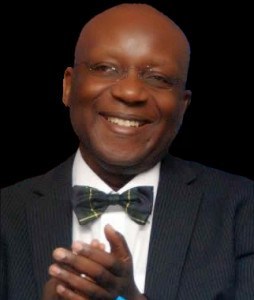
Alimi is the first child and first son of Alhaji Abdul Ganiyu Abdulrazaq. He had his primary education at Capital School, Kaduna, and attended St. Gregory’s College, Obalande, Lagos, for his secondary education. He attended several universities that included Ahmadu Bello University, Zaria; University of Hull, England; University of Florida, Georgetown University and Harvard University, all in the United States, and the Nigerian Law School. He was called to the bar in 1978.
Alimi is the managing director of Zaka Ventures Limited and MC Securities Limited, and is also on the board of First Fuels Limited, Kwara Investment Company Limited and Gateway Insurance Company Limited.
He is the chairman of Nigerian Iron Ore Mining Company Limited and a member of the Presidential Policy Advisory Committee on Defence and Security.
A reputable lawyer, Alimi is the managing partner of House of Laws, a law firm. He and his wife, Foluke, own the Bridge House College, Ikoyi.
A politician, Alimi is said to have brought the Peoples Democratic Party (PDP) to Kwara State and singlehandedly funded it from the scratch. He was a member of the National Steering Committee and Kwara State Coordinator of the Obasanjo Campaign Organisation in 1999.
Abdulrahman Abdul Razaq
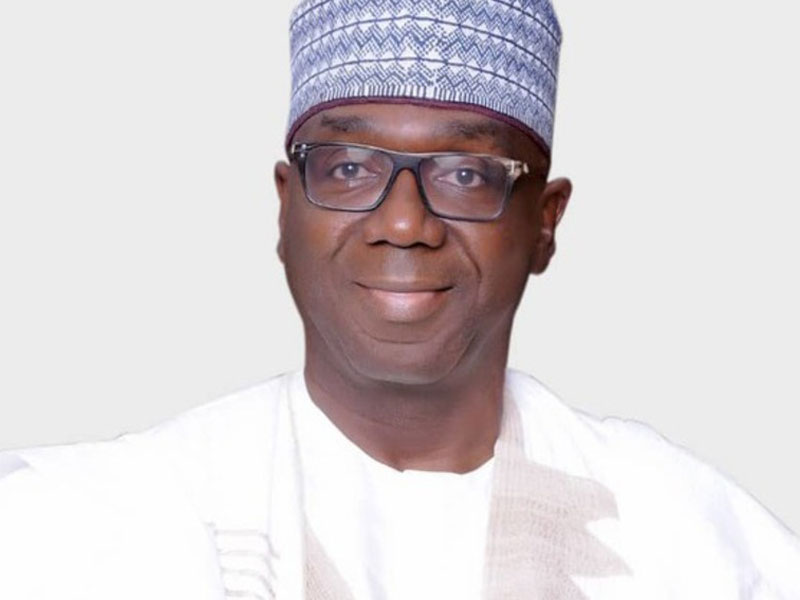
Abdulrahman, the second son of Alhaji Abdulrazaq, is the governor-elect of Kwara State, having won the 2019 governorship election on the platform of the All Progressives Congress.
He attended Capital School, Kaduuna; Bishop Smith Memorial School, Ilorin and Government College, Kaduna. He showed quite early his love for entrepreneurship, which explains why he did not pursue higher education like as his siblings did, save for some executive management courses he did in the course of his business life.
Abdulrahman proved his mettle in business when, at 31, he founded Nigeria’s first indigenous oil and gas trading companies, NOPA Oil Services and First Fuels. He was the first Nigerian to lift crude oil and petroleum products to the United States, Europe and Asia. He is a consultant to several multinational oil companies and governments, including Ghana and Cote D’Ivoire.
He is married to Folake Abdulrazaq, the Minister/Head of Consular, Education and Welfare, Nigerian High Commission, London.
Isiaka Abdulrazaq
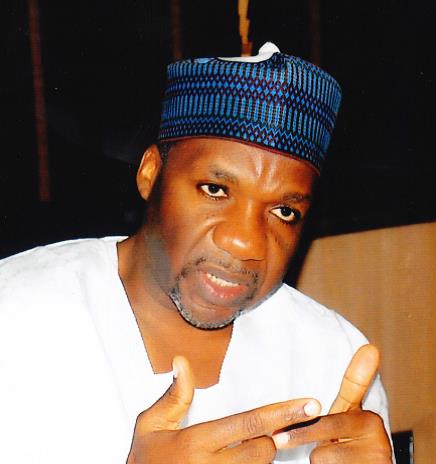
Isiaka Abdulrazaq is the third child and third son of Alhaji Abdulrazaq. He holds a Bachelor of Science (Honours) degree in Mathematics, an LL.B (Honours) and an MBA. He also holds professional qualifications such as ACCA, ACA, ACS, FCCA, ACIT and FCIT. He is the Group General Manager, NNPC Capital.
He had previously with the defunct Power Holdings Company of Nigeria; Debt Management Office in the Presidency, Al-Dahab Consulting Limited, Northern Nigeria Development Corporation as well as Coopers and Lybrand (now PriceWatehouseCoopers), Chattered Accountants.
Abdulrauf Abdulrazaq
Abdulrauf Abduklrazaq is one of the sons of Abdularazaq. He is a businessman who operates in the food and hospitality industry. He also has some conglomerates among is chain of companies.
Senator Khairat Abdul-Razaq Gwadabe
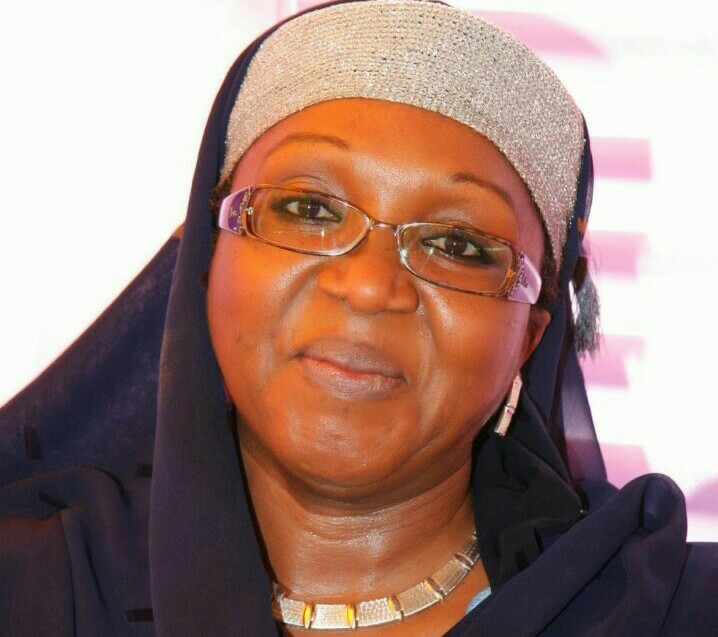
Senator Khairat Abdul-Razaq Gwadabe is the first daughter of Alhaji Abdulrazaq. She studied European History, and later law at the University of Buckingham, England. She was the senator representing the Federal Capital Territory in the Nigerian Senate on the platform of PDP from 1999 to 2003.
While in the Senate, Khairat chaired the committees on Environment, Health, Women Affairs, and was also a member of the committees on Federal Character, Tourism and Culture, as well as the Federal Capital Territory. She was also a member of the Panel of Review of the Nigerian Customs and Excise. She is married to Colonel Lawan Gwadabe (rtd), former military governor of Niger State in the government of General Ibrahim Babangida.
Rissquat Abdul-Razaq Igue
Rissquat Abdul-Razaq Igue is the second daughter of Alhaji Abdulrazaq. She resides in Cotonou, Benin Republic, where she is a well-known property developer and real estate tycoon.
Hajia Aisha Lawal
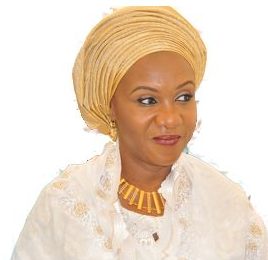
Hajia Aisha Lawal, another daughter of Alhaji Abdulrazaq, attended St. Joseph’s Primary School and Queen Elizabeth Secondary, both in Ilorin, before proceeding to the Ahmadu Bello Unicversity, Zaria, where she studied Microbiology. She did her National Youth Service with Shell Petroleum Development Company. An experienced banker, she worked with Chartered Bank for 10 years.
Aisha was married to the late governor of Kwara State, Mohammed Alabi Lawal.






